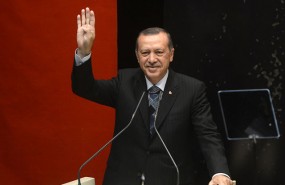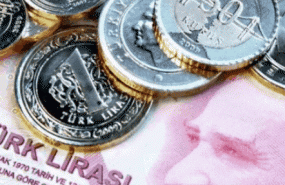The Ibex is unable to bounce back as Turkey keeps the market on its toes
It closed with a fall of 0.25%, to 9,507 points

The session has started in green, although bouncing with no desire, and has closed practically with moderate falls. The Ibex ended with a loss of 0.25% on Tuesday, at 9,507 points, and has remained very aware of the Turkish crisis.
In fact, BBVA has fallen again (-0.09%), despite having started the day with increases of more than 1%. But these losses have not been as strong as those experienced in the previous two sessions, 5% on Friday and 3% yesterday. Thus, instead of the Basque bank, the most bearish value of the Ibex on Tuesday was Mediaset España (-4.39%), which was affected once again by a report from Morgan Stanley. Its analysts have reduced the target price again, to 5.30 euros per share (closed the session in euros).
The media conglomerate has followed in the fall the supermarket chain DIA, which has dropped more than 3.4% in the market after the Norwegian sovereign fund, Norges Bank, has reduced its presence in the capital of the company down to 4.51% and, later, it has increased again to 5.53%.
Meanwhile, the values that have risen the most in the selective segment were CIE Automotive (+ 2.97%), Ferrovial (+ 1.14%) and IAG (+ 0.98%). Regarding the main board, it should be noted that the National Securities Market Commission (CNMV) has warned that Berkeley Energía's securities are quoted at a price "tremendously higher" in the Spanish stock market than in London and Sidney.
OTHER MARKETS AND TURKISH CRISIS
Outside of Spain, the rest of European stock markets have been dyed red in a generalized manner, with falls of between 0.2% and 0.6%. Only the German Dax 30 index has been freed of the falls, and holding on by its fingernails. Wall Street is trading with moderate gains, which has also prevented higher falls in the Old Continent.
Fears of the contagion effect of the Turkish lira crisis have dominated the mood of investors, who flee from Spanish and Italian assets, very exposed to the Ottoman country. The warning from the European Central Bank about the danger hanging over European banks and the fear of a 'domino effect' among emerging countries has triggered risk aversion and, although European futures come with modest rises that point to a rebound this Tuesday, the markets still don't trust in them.
"The question that has operators on edge this week is the one of if Turkey will be able to endure the intense depreciation of its currency and to lead its economic policy in this situation", points the analyst Ramon Morell. For now, the actions undertaken by the Central Bank of Turkey stopped the bleeding in the Eurasian currency, which reached record lows on Monday at 7.24 per dollar.
ECONOMIC FOCUS OF THE SESSION
The attention of investors this Tuesday has also been on macroeconomics since there were important references published today. One of them will the inflation data or the Consumer Price Index (CPI) for Spain in July, as well as the underlying CPI. The figure has moderated to 2.2% in July, one tenth less than in the previous month. In the interannual rate, it decreased by 0.7%.
In Germany, the CPI for July and the Gross Domestic Product (GDP) for the second quarter of the year will be announced. Later, the IPC from France. Finally, the industrial production of June and the GDP of the second quarter of the entire Eurozone will be published.



